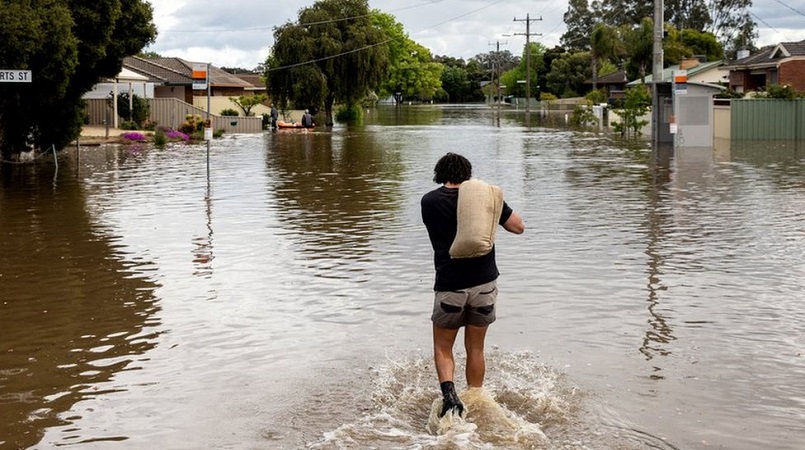
Last month, Cyclone Gabrielle smashed into New Zealand's North Island - killing 11 people and displacing at least 10,000 more.
It's triggered a national debate about climate change and whether vulnerable homes should be rebuilt or written off.
"I don't want to go back there," said Amy Bowkett.
The mother of two lived in the Hawkes Bay area, one of the regions worst hit by Cyclone Gabrielle. When the Category 3 storm hit with wind speeds of up to 159km/h (99mph), her home was completely destroyed.
Along with 50 of her neighbours she spent a terrifying 48 hours trapped without power, water or phone signal.
Eventually she was able to make a call and a friend organised a helicopter rescue from a neighbour's backyard.
"I feel like if we get flooded a third time, it would be our fault," she told the BBC from her mother's home in the nearby city of Napier. "Unless we put our house on stilts, I'd be terrified every time it rained."
She's not alone in fearing to return. Many of the victims of New Zealand's recent floods lost all of their possessions in the disaster and believe the area their homes are built on has become too dangerous for them to go back.
The damage caused by the cyclone is forecast to cost NZD$13.5bn ($8.4bn; £6.9bn), similar to the financial impact of the Christchurch earthquake in 2011 - the costliest natural disaster in New Zealand's history. Last month's event prompted a nationwide state of emergency that only ended on Tuesday.
Cyclone Gabrielle also struck within weeks of unprecedented flooding in New Zealand's biggest city, Auckland, when an entire summer's worth of rain fell in a single day.
New Zealand's climate change minister, James Shaw, attributed the scale of the disaster to climate change, exacerbated by global temperature increases.
"There will be people who say it's too soon to talk about these things… but we are standing in it right now. This is a climate change-related event," he said in a speech to parliament last month.
